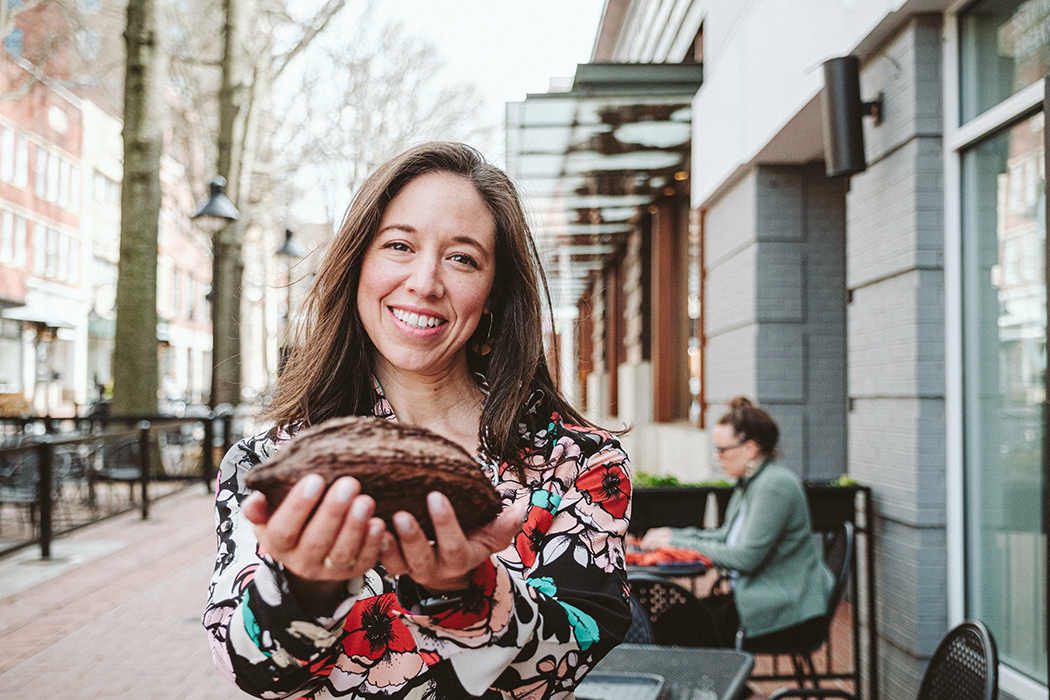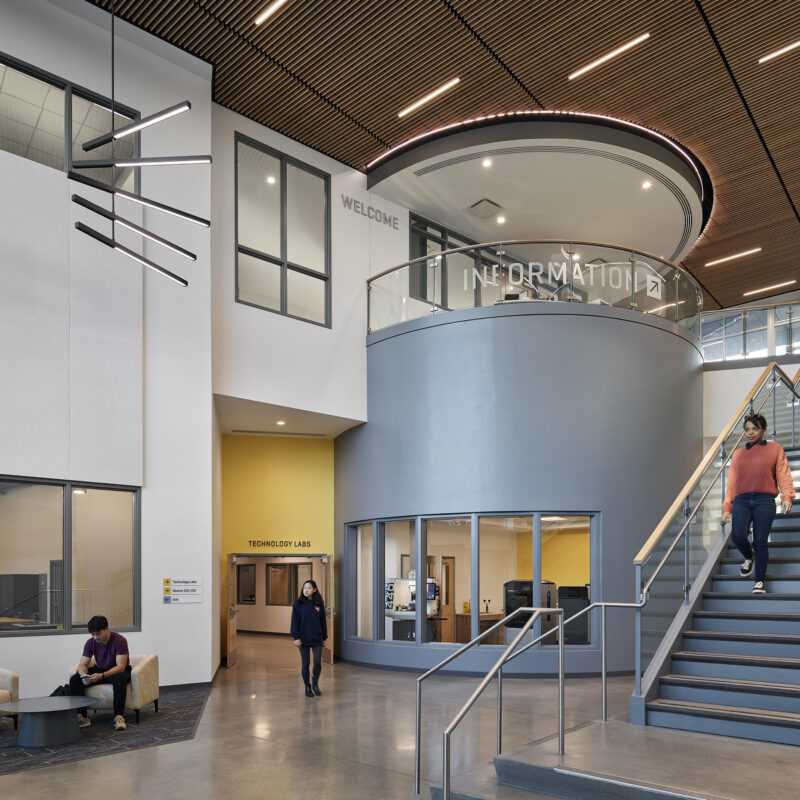Esther Bobbin only had to be near the chocolate industry to fall in love. Now, through her nonprofit United By Chocolate, she’s trying to change the business for the better by breaking down language barriers.
“There are about 4.5 million cacao producers worldwide, and the majority of them don’t speak English,” Bobbin says. “And yet, the majority of chocolate industry groups do all of their events in English. Imagine what we can do, especially now with Zoom and other technology, if we could just translate events into one other language. We can reach so many more people.”
Years ago, Bobbin was working for a government contractor in Seattle and learned her firm’s neighbor was Theo Chocolate, the first fair trade chocolatier in the United States. Drawn to the Theo mission, Bobbin toured the facility multiple times and learned cacao producers often struggle to earn a living wage.
Bobbin, who “grew up in a very international household” with her father and Peruvian mother, eventually left her government contractor job and completed an MBA. She then got involved with the Northwest Chocolate Festival—never forgetting about those industry-wide wage disparities. She thought making the festival accessible to non-English speakers could give them game-changing new networking and educational opportunities.
“It started as something simple, and honestly it was kind of naïve of me,” Bobbin says. “But you would see the cacao producers, who would come to the festival with these baggies of beans to try to connect with the chocolate makers, and they were losing out on this huge opportunity.”
In 2018, Bobbin and her husband moved away from the Pacific Northwest. They had ties to central Virginia and chose Charlottesville as their new home. In February 2019, Bobbin founded United By Chocolate, a nonprofit aiming to “lift the barriers of language to amplify connection and trade” in the cacao industry.
Bobbin and United By Chocolate spent their first several years on translation projects, first manually transforming existing conference videos into new languages, then launching two automated translation efforts with Arizona State University and the University of Virginia. But the UVA project relied on dictation technology that wasn’t quite where it needed to be, Bobbin says, and she and her team tabled it.
In March 2021, Bobbin turned her attention to hosting her own chocolate industry conference. And in January of this year, the first inaugural United By Chocolate festival debuted virtually in three languages: English, Spanish,
and French.
Bobbin hopes to hold the event annually and add Indonesian translations at some point in the future. In the meantime, United By Chocolate will distribute the money it has already raised through its Language Bridges program, work with other industry event organizers to encourage translations, and raise funds for future projects.
“For me, cacao and chocolate can be a vehicle for change,” Bobbin says. “The majority of cacao is grown in the southern hemisphere, and they take on so much risk in the supply chain…and end up getting cut out of pricing. It has always been an issue. It’s just that now, we are seeing it more.”






